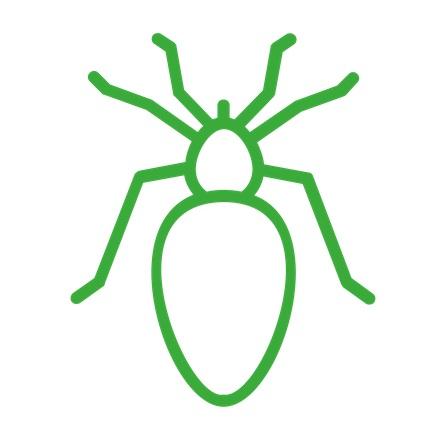Fleas
Good flea control plays an important role in ensuring your pet’s welfare.
Flea bites cause irritation and discomfort and in some cases lead to more severe skin diseases. In large numbers, fleas can even cause anaemia.
If your pet has fleas you may notice that it is scratching more than usual. You may be able to see the fleas, or black specks in your pet’s coat.
How to Control Fleas
In order to achieve good flea control you must understand their cycle.
Adult fleas live on your pet and lay eggs in the fur. The eggs drop to the ground. The larvae hatch out in the carpet and feed on skin flakes and flea dirt. They spin themselves a cocoon, which they camouflage with debris from the environment. The adult fleas hatch out when they sense a host nearby, feed on your pet and the cycle repeats itself.
It is as important to control infestation of the environment as it is to kill the adult fleas on your pet. For allergic animals, environmental control is even more important, as is using a product that kills fleas before they have a chance to bite the animal.
In some cases where your pet has an infestation we recommend that you a buy a household flea spray in order to kill the larvae that are found in the carpets and bedding.
Worm Control
As a caring pet owner you should be aware that controlling parasites within your pet is an important part of keeping your pet healthy.
Even without showing obvious signs of worms, your pet could be suffering from a worm infestation. Furthermore, worms carried by dogs and cats can pose a health risk, not just to the pet in question but to also other animals and to humans.
The main types of worms your pets are at risk from are roundworm, tapeworm, lungworm, whipworm, hookworm, heartworm.
What are the symptoms that your pet has worm infestation?
• Loss of appetite
• Poor coat condition
• Your pet has a potbelly appearance
• Sudden weight loss
• Diarrhoea
• Vomiting
• Lethargy
• Anaemia
• Worm segments around the anal area
• Continual licking of the anal area
• Your pet scoots around on its rear end
• Breathing difficulties
Worms can be anywhere outside or inside, as tiny eggs that are just waiting to be picked up and eaten by your pet.
Worms are hard for your pet to avoid and can be acquired from the following sources:
• Contact from the soil, grass and sand, such as in the park, garden or children’s play area.
• Savaging and hunting
• Eating raw meat
• Fleas
• Eating faeces
• Puppies and kittens are commonly infected from their mothers.
• Eating slugs and snails


